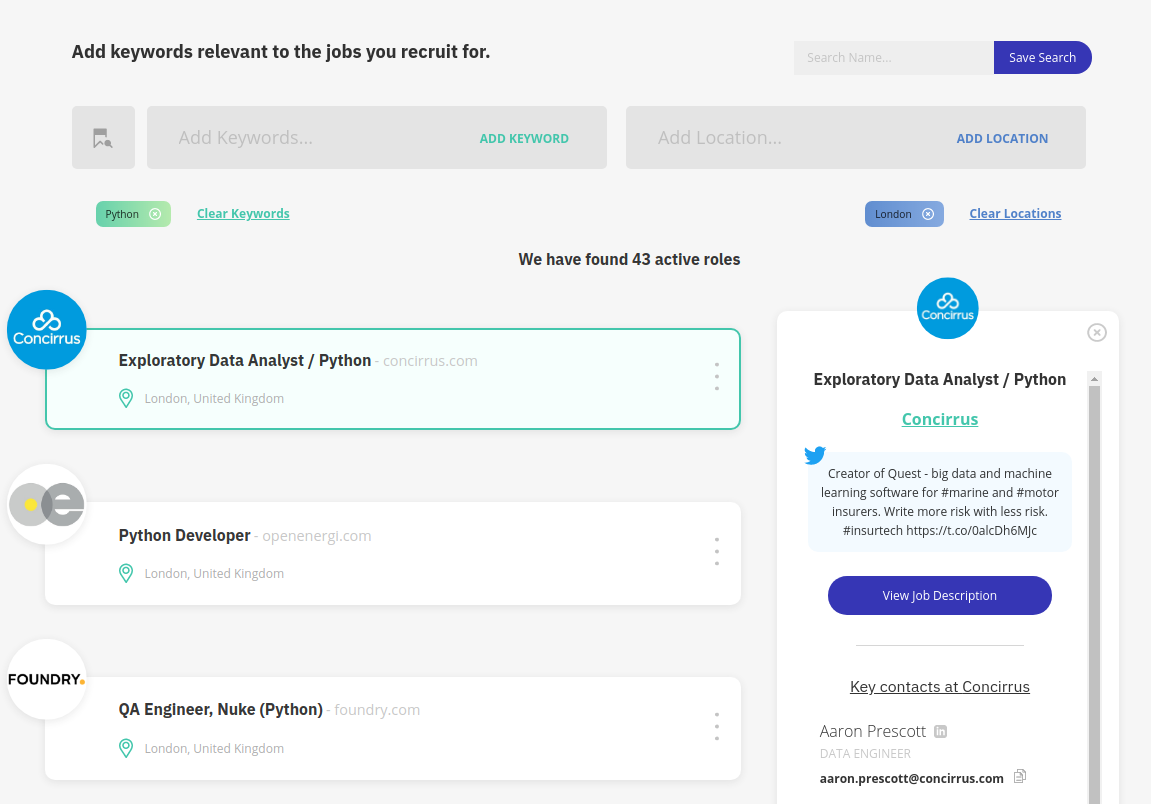Niito
niito is a business development platform for recruiters that I built in 2018 with my friend Jack. I built the apis, and the data collection with Python, Flask, MongoDB and Heroku.
Founding
We started building niito after a building a business development tool which didn't gain traction. We decided to speak to the users we did have and ask what they used the service for. Many of them were recruiters, and they were using the service to get email addresses for potential business clients. From further conversations, we found that upto 50% of a recruiter's day is spent searching for job roles, finding the person at the company who would be responsible for the roles fulfilment, and then finding that person's contact details. niito brought all of that into a single tool.

Tech Stuff
A Flask app connected the front-end to our Mongo database. Auth and accounts were managed by auth0.com. The data that this service heavily relies on falls in to 2 areas: data collection, data extrapolation.
Data collection is essentially looping through a long list of companies, and using requests and external apis to get the job info. These companies were added to our database through an admin panel we created.
If I was doing this again, this would have been a Django app. Would have saved building our own admin panel and a few other difficult features. I would have made our data collection asynchronus using aiohttp. This would have reduced our data collection time considerably. However, it would have meant more requests blocked so maybe it wouldn't have been such a neat idea.
Results
We had a very promising start. About 30 people signed up for free in the first week. Eventually we got paid for customers as well, more than enough to cover the cost of running the service. The service still runs itself today. Ultimately we have stopped marketing the service. Whilst the product I believe can succeed, I'm not convinced Jack and I are the right people to do it as we lack the passion for the sector.